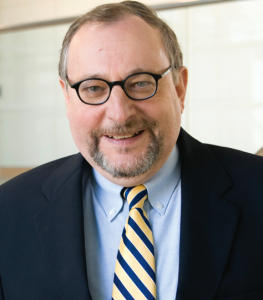Preface – WCLC 2017
Fred R. Hirsch, MD, PhD
Dear Colleagues,
Throughout the last decades, the treatment of non–small-cell lung cancer has undergone enormous advancements that make keeping up with the latest developments a challenge for physicians. For purposes of providing continual education to health care professionals involved in lung cancer care, the World Conference on Lung Cancer (WCLC) of the International Association for the Study of Lung Cancer (IASLC) is now being held annually. With delegates from more than 100 countries attending, this conference has become the premier international forum in the field of lung cancer and thoracic malignancies.
From 15th to 18th October, the 18th WCLC took place in Yokohama, Japan. The programme offered more than 2,000 oral, mini oral and poster abstract presentations, and more than 400 renowned speakers, session chairs and abstract discussants shared their knowledge with the audience. In a way, the choice of the congress location might mirror the fact that much of the recent lung cancer research that has succeeded in actually improving patient outcomes has taken place in Asian countries. Clinical trials conducted in Asia have contributed considerably to the development of targeted therapies, such as EGFR or ALK tyrosine kinase inhibitors, and immunotherapies, but also to the implementation of cytotoxic drugs. Particularly in lung cancer, Eastern Asia has evolved into a stronghold of cancer research over the previous years.
The WCLC 2017 issue of memo inOncology covers various topics ranging from thoracic surgery to targeted therapy, immunotherapy, chemotherapy, and mesothelioma treatment. Overall, the data presented at the conference highlighted the steady progress that is being made in all of these areas, as new targets, new biomarkers and novel ways to apply the established interventions are moving into the focus of scientific research. Of course, screening for lung cancer is another important area that can contribute greatly to rendering lung cancer a controllable disease. Nationwide screening programmes are currently ongoing in various countries and might provide answers to open questions as they are conducted on a large scale. We hope that early detection, further drug development as well as innovative combinations and the identification of reliable biomarkers will make cure a feasible goal for many of our patients in the foreseeable future.
Fred R. Hirsch, MD, PhD
CEO of the IASLC
Professor,
University of Colorado School of Medicine,
Denver, Colorado, USA
More posts
Chemotherapy: new approaches, new settings
Chemotherapy: new approaches, new settings SCAT: customising adjuvant chemother
Malignant mesothelioma: recent data on nintedanib and checkpoint inhibitors
Malignant mesothelioma: recent data on nintedanib and checkpoint inhibitors Mal
Approaching squamous-cell carcinoma in a targeted manner
Approaching squamous-cell carcinoma in a targeted manner Possible benefit from
Immunotherapy: novel biomarkers on the horizon & news from pivotal trials
Immunotherapy: novel biomarkers on the horizon & news from pivotal trials I
Taking anti-EGFR drug treatment further: later lines
Taking anti-EGFR drug treatment further: later lines Osimertinib after prior EG
“We are making steady progress toward better lung cancer control”
“We are making steady progress toward better lung cancer control” The motto of





